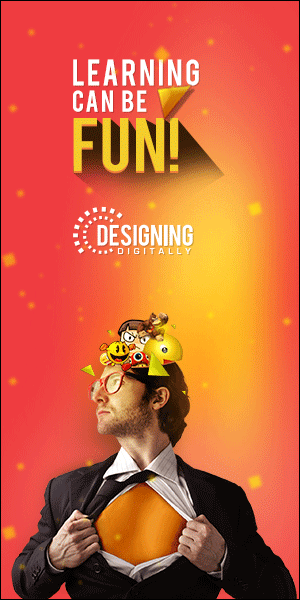A growing number of adults in their 30s, 40s, and 50s are discovering that it’s never too late to start over, and they’re doing it without going back to college or taking on crushing student debt. Sonoran Desert Institute (SDI), accredited by the Distance Education Accrediting Commission (DEAC), helps make this possible by offering skill-based online coursework that are designed to prepare students with practical skills for pursuing opportunities in new career fields.
Whether driven by burnout, layoffs or the desire to find more meaningful work, people in midlife are stepping away from stale jobs and into fields like drone operations, cybersecurity, equipment repair and gunsmithing. These second careers offer financial stability, personal satisfaction and a renewed sense of purpose, all without the burden of a four-year degree.
Why More Adults Are Making a Change
Career change used to be seen as risky or unrealistic in midlife. But in today’s fast-moving economy, it’s often the smarter choice. Technology has redefined what jobs are in demand, and workers want careers that match both their skills and their lifestyle.
Many adults are also responding to deeper changes, industry shifts, company closures or personal reflection. They’ve spent years building experience, but they’re ready for something new. What they’re not ready for is debt, long classroom hours, or outdated credentials.
Skill-based education offers a solution. Coursework that focuses on hands-on training, real-world tools and specific certifications allows adults to learn quickly, apply their knowledge and enter new industries in less time, and with less cost than traditional college degrees.
Midlife Learners Bring Real Strengths
Older students often outperform their younger counterparts in discipline, time management and motivation. They’re focused, practical and goal-driven. They’re also experienced problem solvers who understand the value of reliability, accountability and consistency.
Skill-based courses are well-suited to these strengths. They skip theory-heavy content and get right to the core of what students need to know to perform on the job. For midlife learners who want results, this style of education delivers both speed and relevance.
Careers That Make the Transition Worth It
Several fields have emerged as strong options for midlife professionals seeking second careers:
Drone Services and Aerial Mapping
Uncrewed aerial systems have become indispensable tools across industries like real estate, construction, agriculture and public safety. Training covers everything from flight planning and FAA regulations to equipment maintenance and data collection. The careers that follow offer not only solid pay but also flexibility, autonomy and long-term growth potential.
Cybersecurity and IT Support
As cyber threats rise, so does the demand for entry-level technicians and analysts. Certifications can be earned in months, and jobs often allow for remote work. Midlife career changers with attention to detail and a calm problem-solving style often thrive in this field.
Gunsmithing and Firearm Technology
Gunsmithing is a field that blends craftsmanship with safety and mechanics. It is ideal for those who enjoy working with their hands. With additional training, many go on to open small businesses, consult law enforcement or work in retail and repair.
Technical and Mechanical Trades
HVAC, diesel repair, electrical work and similar trades continue to hire based on skill, not degrees. With certification and practical instruction, adults can move into roles with consistent hours and competitive pay.
SDI offers flexible, online coursework in firearms technology and uncrewed technology, catering to working adults seeking career transitions. While the institute specializes in these areas, midlife learners interested in fields like cybersecurity and equipment repair may explore programs offered by other institutions.
Debt-Free Paths to Meaningful Work
One of the main reasons midlife professionals hesitate to return to school is cost. With families supporting retirement on the horizon, going into debt for a new degree doesn’t make sense. Skill-based education avoids this trap.
Many courses cost a fraction of what traditional college tuition demands. Some even offer payment plans, scholarships or eligibility for state or workforce grants. Combined with the shorter duration of study, these affordable options help students pursue education, without taking on significant debt.”
This lower financial barrier is opening doors to people who may have thought a career change was out of reach. It also helps reduce stress and risk, allowing students to focus on learning, without worrying about future loan balances.
Training That Respects Experience
Good programs don’t treat midlife learners like beginners. They respect the life skills these adults bring to the table. They design instruction around real-world tasks, offer self-paced or flexible formats, and connect students with instructors who understand adult learning styles.
Support services also matter. Programs that offer job placement help, interview prep and résumé coaching give students a real advantage. For someone stepping into a new field after 15 or 20 years, these resources help bridge the confidence gap and make the transition feel possible.
From Reset to Reward
Success in a second career often comes with more than a paycheck. Many midlife professionals report greater fulfillment, better work-life balance and stronger mental well-being. They’re working with purpose, learning again and proving that change is not just possible, but worth it.
A former retail manager retrained in cybersecurity and now works for a healthcare system. A stay-at-home parent becomes a certified drone technician and begins contracting for a land development company. A laid-off factory worker completes firearm technology training and opens a local repair shop. These stories are becoming more common, and they are reshaping what career success looks like.
The Confidence to Start Again
Starting over isn’t always easy, but with the right support and a purposeful path, it can be one of the most empowering choices a person makes. Today’s workforce no longer values degrees alone, and instead prioritizes ability, professionalism and readiness. Skills-based courses help students prepare for roles that offer stability, purpose and forward momentum.
The notion that a person must stick to one career for life is outdated. As industries develop and personal priorities shift, so should opportunities. For adults ready to transition into something new, the best next step is often coursework that delivers practical training, acknowledges prior experience and creates a direct path to employment.
Institutions that serve midlife learners through flexible, relevant and outcome-driven courses recognize this reality. They understand that a career change isn’t about starting over. It’s about starting smarter. And with accessible, affordable education that avoids unnecessary debt, it’s never too late to build a career that truly fits.
For anyone ready to pursue their next chapter, confidence doesn’t come from going back. It comes from moving forward with skill, purpose and a clear vision of what is next.














Comments